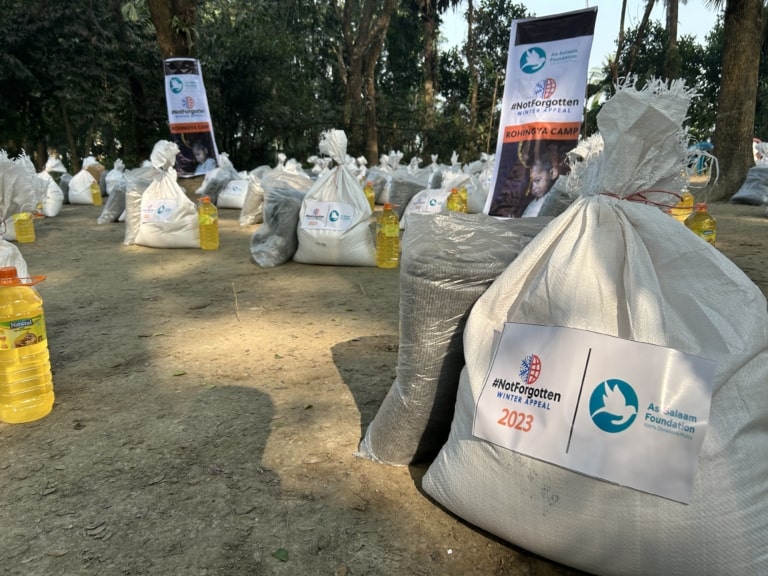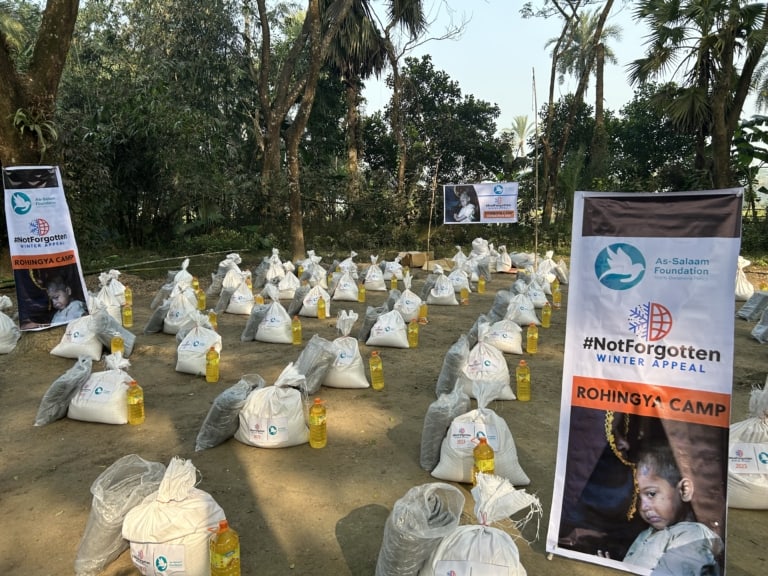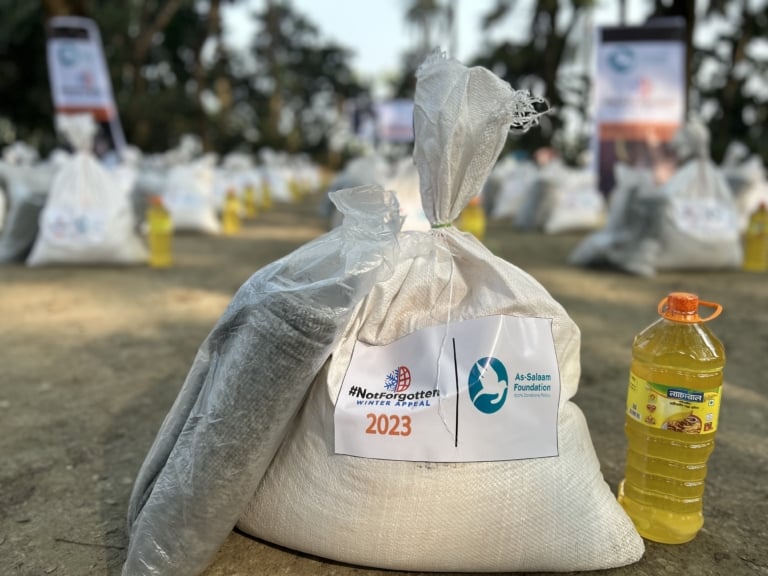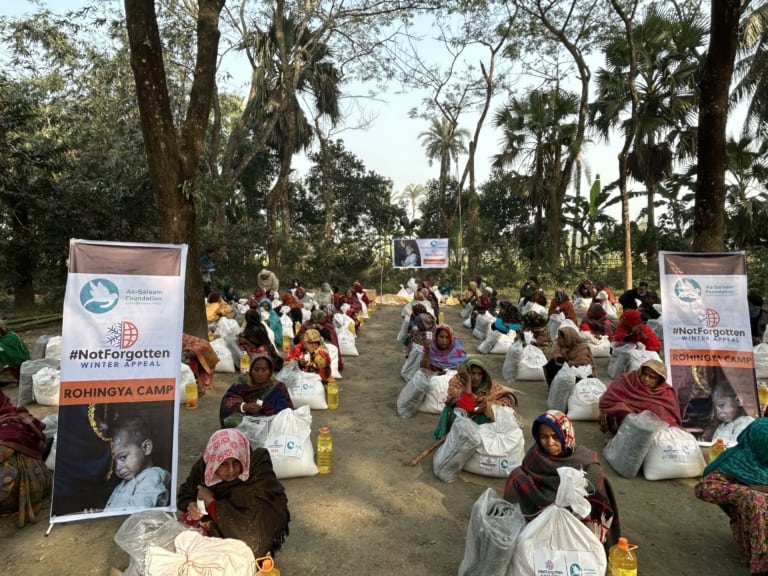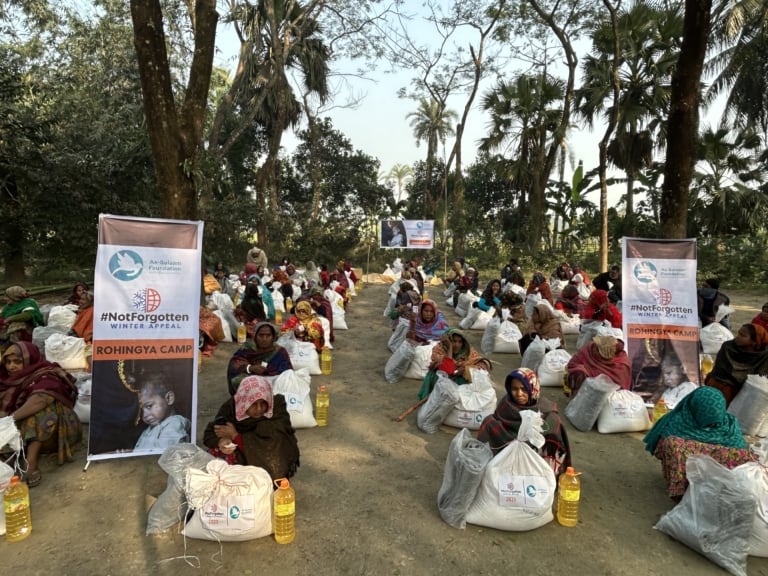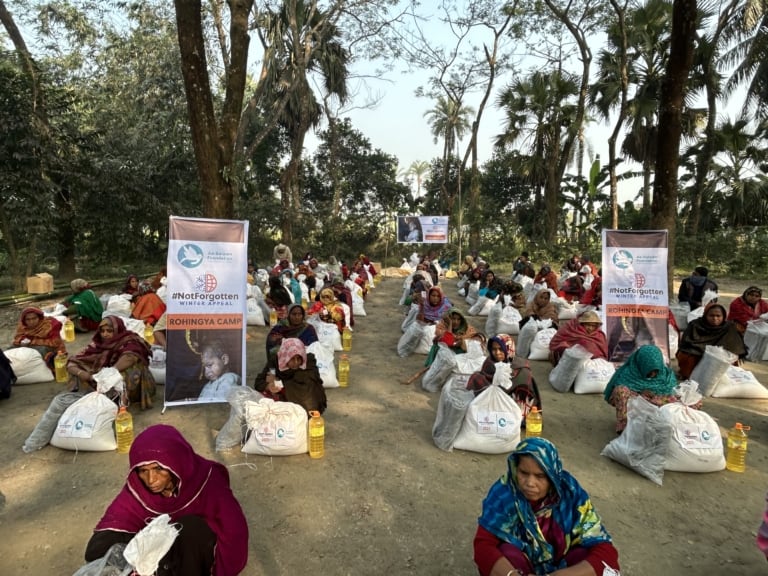Total Raised
Beneficiaries Served
Rohingya Refugee Camp – No Prospect to Ever Return Home
The Rohingya refugee camp Cox’s Bazaar, Bangladesh is the largest and most well-known of these camps is Kutupalong-Balukhali, where a significant number of Rohingya refugees have sought shelter since fleeing violence in Myanmar.
In southern Bangladesh, more than 920,000 Rohingya refugees from Myanmar have taken refuge near the city of Cox’s Bazar, extending over several square kilometers, making it one of the largest refugee camps in the world, in an area now known as the “world’s largest refugee camp”.
Here, residents live with the risk of fire, monsoon rains, and no prospect of returning home. Not forgetting other significant challenges, including overcrowding, inadequate sanitation facilities, the risk of disease outbreaks and dying due to the adverse weather in winter.
Many brought with them only the clothes they were wearing when their homes and villages were attacked, destroyed, and set on fire. It has been five years since the last mass exodus from Myanmar. But the refugee Rohingya still face no prospect of returning home.
Why are Winters so Deadly?
Winter in the Cox’s Bazar refugee camp can be particularly deadly due to a combination of factors, including:
- Lack of Adequate Shelter: Many refugees in the Cox’s Bazar camp live in temporary shelters made of bamboo, plastic sheets, and other makeshift materials. These shelters provide minimal protection from cold temperatures, wind, and rain, leaving refugees vulnerable to the elements during the winter months.
- Limited Access to Warm Clothing and Bedding: Rohingya refugees often lack access to warm clothing, blankets, and bedding materials needed to stay warm during the winter. This lack of adequate insulation can lead to hypothermia and other cold-related illnesses, especially among children, the elderly, and those with pre-existing health conditions.
- Health Challenges: The crowded and unsanitary conditions in the refugee camp increase the risk of respiratory infections, pneumonia, and other illnesses during the winter months. Limited access to healthcare services and medical supplies further exacerbate these health challenges, making it difficult to treat and prevent cold-related illnesses.
- Food Insecurity: During the winter months, food insecurity may worsen for refugees in the Cox’s Bazar camp due to limited access to nutritious food and cooking fuel. Malnutrition weakens the immune system, making individuals more susceptible to cold-related illnesses and other health complications.
- Environmental Hazards: The refugee camp is located in a low-lying area prone to flooding and landslides, which can be exacerbated by heavy rainfall during the winter monsoon season. Flooding and landslides pose additional risks to refugees living in makeshift shelters, increasing the likelihood of injuries, displacement, and loss of life.
- Limited Humanitarian Assistance: Despite ongoing efforts by humanitarian organizations to provide aid and support to Rohingya refugees in Cox’s Bazar, resources are often stretched thin, especially during the winter months when demand for shelter, food, and medical care increases. Limited funding, logistical challenges, and bureaucratic barriers may hinder the delivery of timely and adequate assistance to those in need.
Overall, the combination of inadequate shelter, limited access to essential resources, health challenges, environmental hazards, and gaps in humanitarian assistance make winter in the Cox’s Bazar refugee camp exceptionally perilous for its inhabitants.
How We Responded?
As-Salaam provided 90 direct families (450 individuals) strategically comprising vulnerable individuals, orphans, and widows with not just essential food items, warm blankets, and safety kits, but also a renewed sense of hope and dignity.
We thank all donors for their generous contributions and pray that it is accepted.

